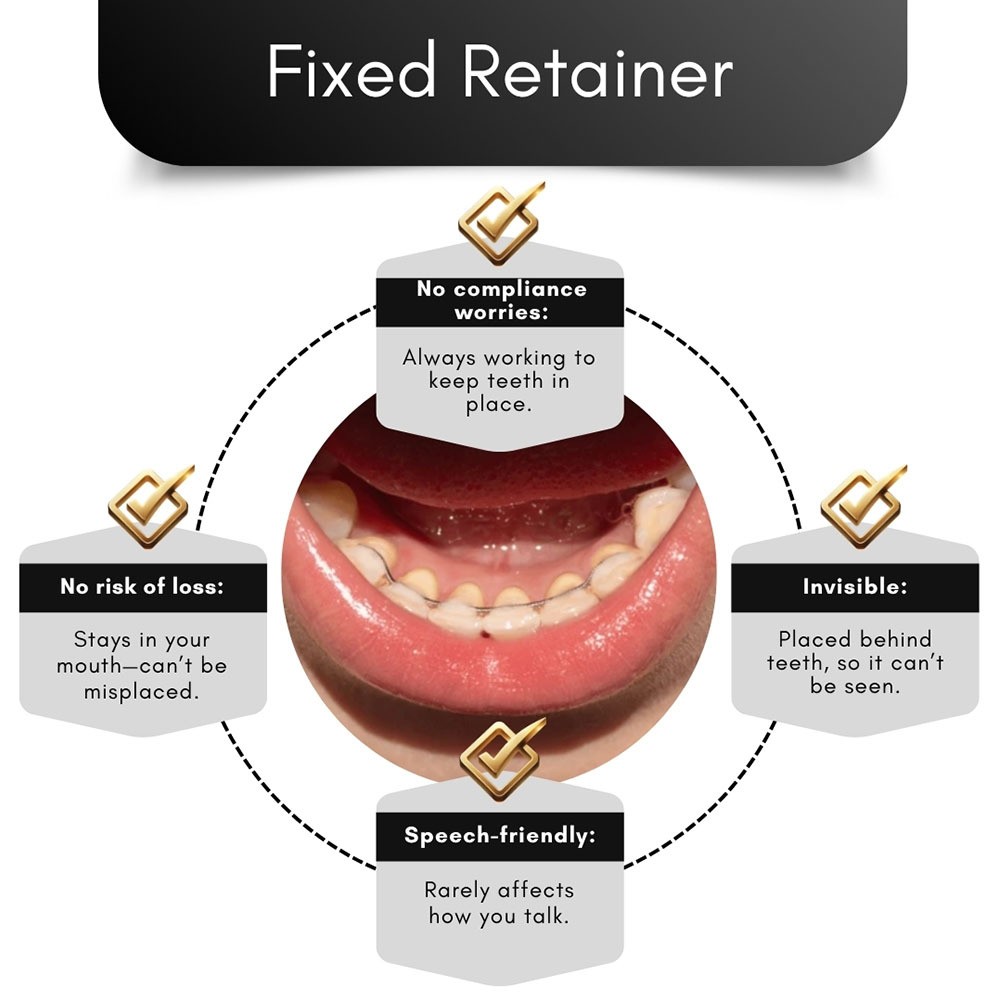What Is a Fixed Retainer?
A fixed dental retainer is a braided or solid section of wire that we will curve to conform to the shape of your teeth. They’re used to keep your teeth in a new position after Invisalign aligners or dental braces have straightened them. Once we have shaped the wire, it is cemented or bonded onto your teeth, retaining or preventing them from moving.
Once a fixed retainer is in place, it can only be removed by orthodontist or dentist at our Invisalign office located in Brooklyn.

When to Choose a Fixed Retainer?
We may recommend a fixed retainer if we think your teeth will likely return to their original positions. It can be a useful solution when someone may have difficulty or forget to use a removable retainer, for example, after straightening the teeth of a young child.
Initially, a fixed retainer is left in place indefinitely, but we will likely want to remove it at some point. Leaving it in place permanently can increase the risk of plaque and tartar buildup.
What Our Patients Are Saying
What Are the Advantages of a Fixed Retainer?
Advantages can include the following.
- There are no compliance issues when you have a fixed retainer, and it works continuously to hold your teeth in place.
- The retainer is fitted inside your teeth, so it is not visible.
- It’s unlikely that your fixed retainer will affect your speech.
- You cannot misplace or lose a fixed retainer.
What Are the Disadvantages of a Fixed Retainer?
Disadvantages can include the following.
- Keeping a fixed retainer clean can be harder, especially as it is trickier to see and floss around thoroughly. This can increase the risk of plaque and tartar buildup and potentially gum disease.
- The metal wire may irritate your tongue initially.
- Not everyone can cope with the feeling of having a wire fitted inside their teeth.
- A fixed retainer is relatively fragile.
Can a Fixed Retainer Break?
A fixed retainer can become broken; breakages usually occur within the first few months of the retainer being fitted. Sometimes, broken or damaged retainers are considered an orthodontic emergency, so it’s essential to contact your orthodontist immediately to assess the damage and determine if it can be repaired or needs to be replaced. Reasons for breakages can include:
- The retainer may break if you bite into something hard.
- They can wear down over time and may need replacing at some point.
- Sometimes, the bonding agent will separate from your teeth or will fail.
What Happens if a Fixed Retainer Breaks?
If your fixed retainer breaks, contact our dental office. Please note we cannot tell you how to fix a broken retainer as it can only be repaired by our orthodontist or another dental professional.
Caring for Your Mouth With a Fixed Retainer
It is vital to clean your fixed retainer thoroughly. Ensure you brush it at least twice daily and floss around it every day. A floss threader can make it easier to clean underneath the wire, and our dental team can demonstrate how to use these devices. Alternatively, you may find it easier to use a water flosser.
Because a fixed retainer can be a bit more fragile, it’s important to avoid biting into hard foods that could damage it. Some foods, like seeds and nuts, are more likely to get stuck around your retainer.
Having more frequent dental cleanings while wearing a fixed retainer may be worthwhile to remove plaque and tartar buildup and maintain a healthy mouth.
Fixed retainers can be a great choice in certain circumstances. You may prefer the convenience of having a fixed retainer that works permanently to maintain your straighter smile. Otherwise, we can discuss removable alternative options like an Essix or Hawley retainer. Contact Brooklyn Invisalign Center at (718) 375-3757 to schedule a consultation.

